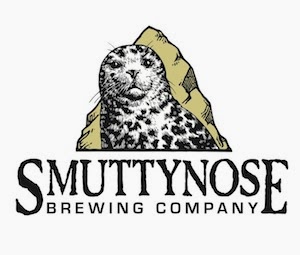Charlie, our barrel master is funky. Not intergalactic, Atomic Dog funky. Funky like smelly-feet funky. And the man makes funky beer-beer with wild yeasts and bacteria. Sour beers, tart beers, crazy beers. Charlie is a special one to say the least.
The initial premise to Short Batch #9 was to make another soured beer that would take less time than the Strawberry Short Weiss, which was left to get lactic and ferment in a large plastic tote in our lunch/hospitality room for about a year. We would periodically add strong wort to the batch until it expressed a sour character that we were happy with; only then did we add 300 pounds of strawberries. The total yield was about 200 gallons and it was a year and a half late from it’s expected ready date. There had to be a better way.
After some field research, our friend Will Meyers of Cambridge Brewing Company in Cambridge, Massachusetts shared a technique that shortened the lactobacillus portion of the beer from a year to a long weekend and (as we think) made it taste better.
We began by mashing in and lautering like normal. The plan was to get twenty barrels of wort with an extract of twelve degrees Plato. Normally, the wort would get boiled and hopped immediately, then cooled and sent to a fermenter with brewer’s yeast. Instead we added a double pitch of lactobacillus to the kettle and left it at 100 °F for the next three days. This allowed the lactobacillus to happily eat sugar and make lactic acid while we were ringing in the New Year’s and sleeping it off the next day. By Sunday morning, the wort was perfectly soured. We still needed to ferment the rest of the sugar out (for alcohol) without sending bacteria through our hoses, heat exchanger, and fermenter gaskets. Lactobacillus can be very difficult to eradicate and nobody wants a lactic Brown Dog. Wouldn’t be prudent. So we boiled the hell out of it. Seventy five minutes of rolling, ripping pasteurization.
Being a Belgian influenced beer, we pitched our house Belgian yeast strain to finish up the fermentation. Like a lot of things life, balance is important in a beer like this. If it’s too acidic, it gives you raging heartburn. If it doesn’t express enough acidity, then you’ve kind of missed the point. If there’s no alcohol, you’ve kind of missed the point to. It’s not even beer.
All that was left to decide now was if the beer needed fruit. And then one day, Charlie just blurts out “raspberries” at the lunch table. “We need like, 400 or 500 pounds of raspberries.” So that’s what we did (well, we settled on 458 pounds). We got buckets and buckets of red raspberry puree. We also got 60 pounds of oak chips. Then we aged the beer with the twigs and berries for several months until it was ready. We weren’t sure when it was going to be ready, it kind of just was ready.
One morning at around 8:15, I see Charlie walking towards me with a huge smile, carrying a plastic cup with some kind of brownish beer with a slight red hue to it. “Dude, try this! A little CO2 and this is naughty.” The beer was tart, moderately fruity with a really thin body and a clean finish. There was barely a hint of sweetness. You could drink this beer for days.
And that’s the tale of Short Batch #9 d.b.a. “Rouge d’Shire.” I guess it goes to show that special beer comes from special people; and maybe, just maybe Charlie does have some kind of magical, beery, Mothership Connection after all. Try it and see for yourself.
Rouge d’Shire Statistical Breakdown
Starting Plato: 12°
IBU: 10
Malts: Pale, Aromatic, Carared, C-60, Special B
Hops: Crystal
Other Ingredients: 458 pounds of Red Raspberries, 60 pounds of medium toast oak chips
Suggested food pairings: The acidity in this beer will cut through any rich fatty foods. Our resident chef, Joe Drouillard recommends a pan sautéed duck breast or for dessert, cheesecake.
